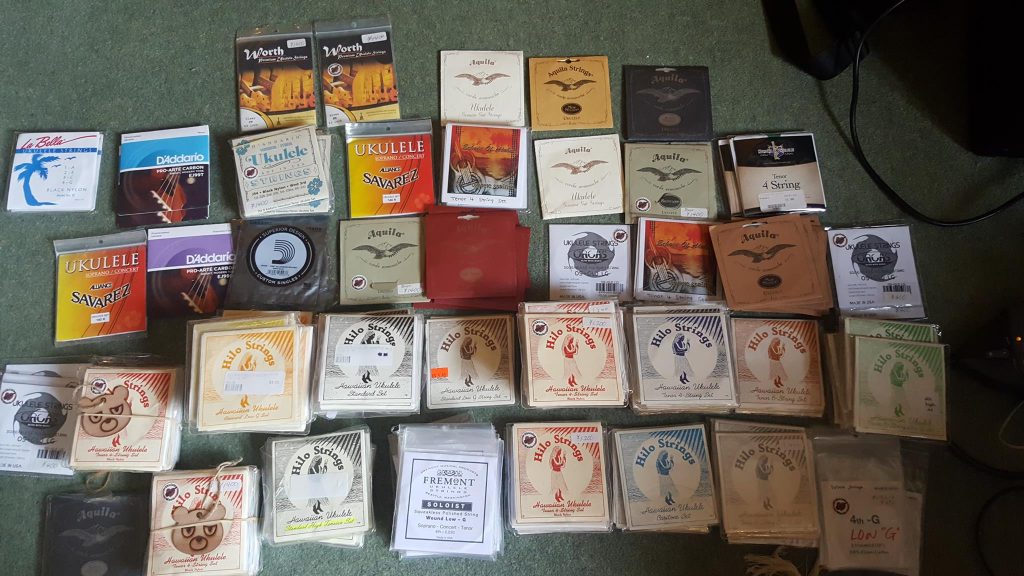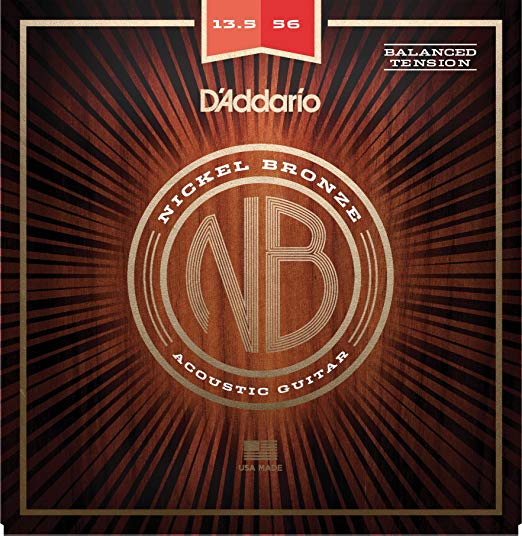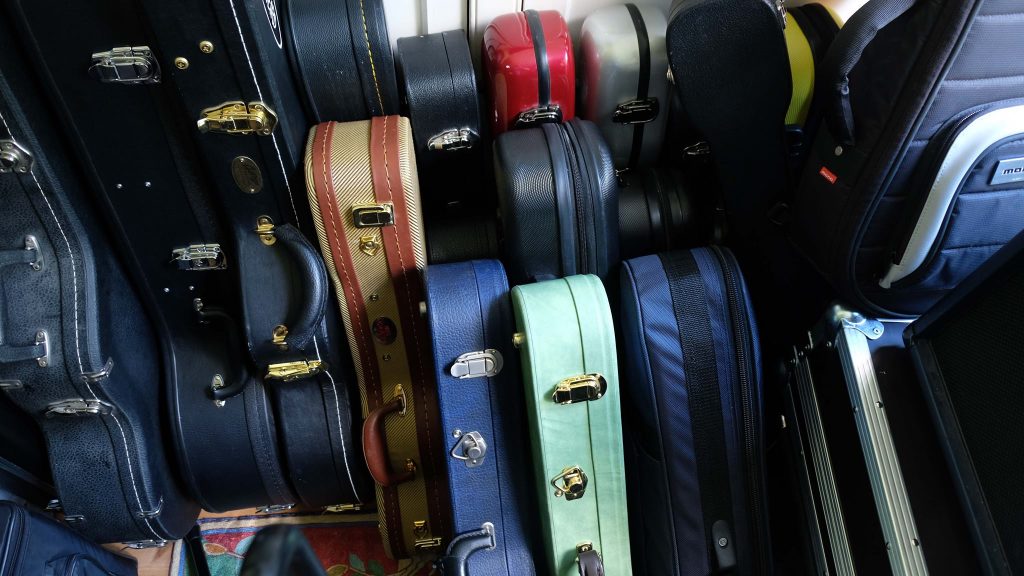I continue to be amazed at how much difference some instrument string combinations make when matched to musical instruments. Since 2004 I’ve done a lot of research on what sounds great to my ears in terms of ukuleles and now I’m revisiting electric and acoustic guitar combinations.
Ukuleles are small bodied instruments and of course there are no “best strings” despite the nonsense proclaimed online in uke based social media! Instead different sized ukes with different materials will create some very different sound outcomes.

For my Shimo instruments Hilo strings are my first choice. The strings are much thicker than anything else I have used. Of course Hilos are now impossible to find, but I did stockpile 160 sets including 23 baritone uke sets. For my two Collings concert ukuleles, the Worth Brown sets sound best to my ears. For low G strings on tenor ukes, I prefer Freemont strings.
Guitar Strings
In recent times I’ve been playing more guitars and have been reviewing string choices for both electric and acoustics. Martin Simpson pointed me to balanced tension Nickel Bronze strings by D’addario. The low E is a 13.5 gauge, so we are in “Stevie Ray Vaughn” territory. These work brilliantly for my two Stefan Sobell acoustics, but would not be the best fit for by Collings guitars.

D’addario also do electric NYXL sets that sound great on my stratocasters. I’m always fascinated at the sonic improvement with a new set of strings and these are quite exceptional. Martin Simpson always advocated the benefits of changing strings and I agree 100%

Of course not everyone gets this and of course social media forums are full of posts asking “What are the best strings?” and in the ukulele world some advocate buying fishing line, rather than invest in actual quality checked ukulele string sets. Part of finding your sound as an artist is in making string choices as they are a key ingredient in determing the final sound.